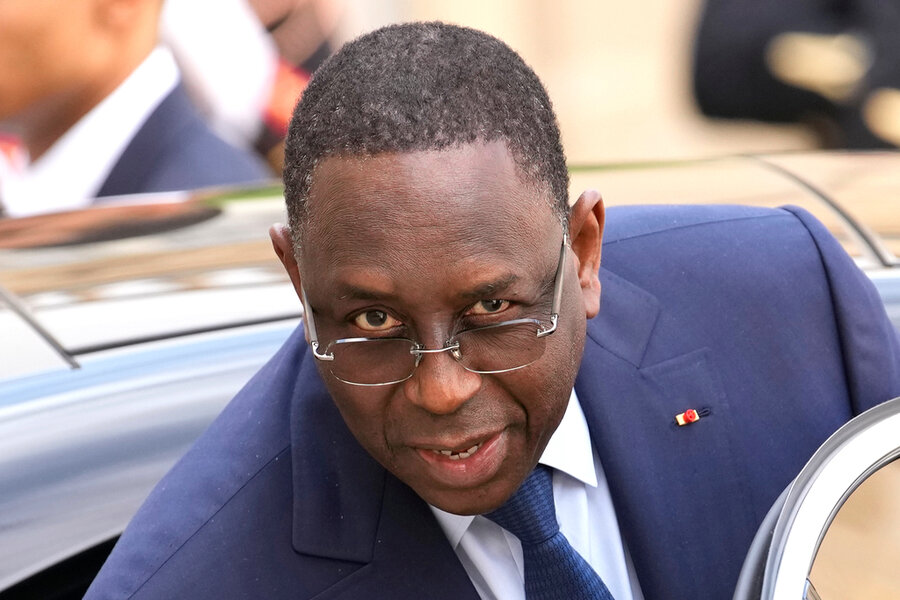An African leader sets a tone of integrity
For Africa’s elected leaders seeking to extend their hold on power, fiddling with constitutional limits has been one of the most dog-eared tricks in the political playbook. That trick just got a little harder. Earlier this week, Senegalese President Macky Sall announced that he would not circumvent his country’s laws to seek a third term in elections later this year. “I have a code of honor and a sense of historical responsibility that compel me,” he said in an address on July 3. “Senegal is more than me.”
Mr. Sall’s deference to a democratic norm comes amid some other bright turns for democracies worldwide. On June 22, Mexico’s highest court struck down reforms sought by President Andrés Manuel López Obrador that would have eroded the independence of the agency that oversees national elections and weakened its ability to hold politicians accountable for breaking election laws. Chile, meanwhile, is setting a standard for deliberative constitutional reform that has been shaped and checked by voters six times over the past 30 months.
Africa’s efforts to entrench democratic practices like rotation in office and peaceful transfer of power may get less notice than deserved. Nearly 40 countries have adopted presidential term limits. Those measures have been subject to almost constant meddling. Since 2000, according to the Open Society Initiative for Southern Africa, presidential mandates were removed or loosened at least 24 times in 18 countries. But they have been strengthened in at least 23 cases across 19 countries during the same period.
In an African Union declaration last year, members issued a declaration to “strongly condemn all forms of unconstitutional changes of government,” including “entrenching power of the incumbent in violation of the national democratic principles.” More than 75% of Africans support presidential term limits, according to Afrobarometer.
Senegal is now showing how democratic aspirations become principles. The country adopted term limits under a new constitution in 2001. That provision survived its first test in 2012, when voters rejected an attempt by then-President Abdoulaye Wade to seek a third term. Mr. Sall won – and now it is his turn to reaffirm the precedent his election set.
There were doubts in recent months that he would. At least 16 people died in street protests that turned violent last month in part over his refusal to confirm that he would not run again. The delay may have reflected more wisdom than dithering. As Mr. Sall noted, a broad sweep of mayors and members of parliament were pushing him to run again. At stake, observers say, is political control over Senegal’s lucrative impending oil and gas development deals.
At earlier points in his career, Mr. Sall showed little patience with corruption. His adherence to rules-based governance may now hold another point. “We must stand up for democracy and freedom, and uphold the best of our collective and African identity – an identity that is both rooted in our traditions and open to a world of innovation and opportunity,” the president wrote in an op-ed in Project Syndicate on Friday. For a continent hoping to reshape the global order, credibility abroad starts with honesty at home.






